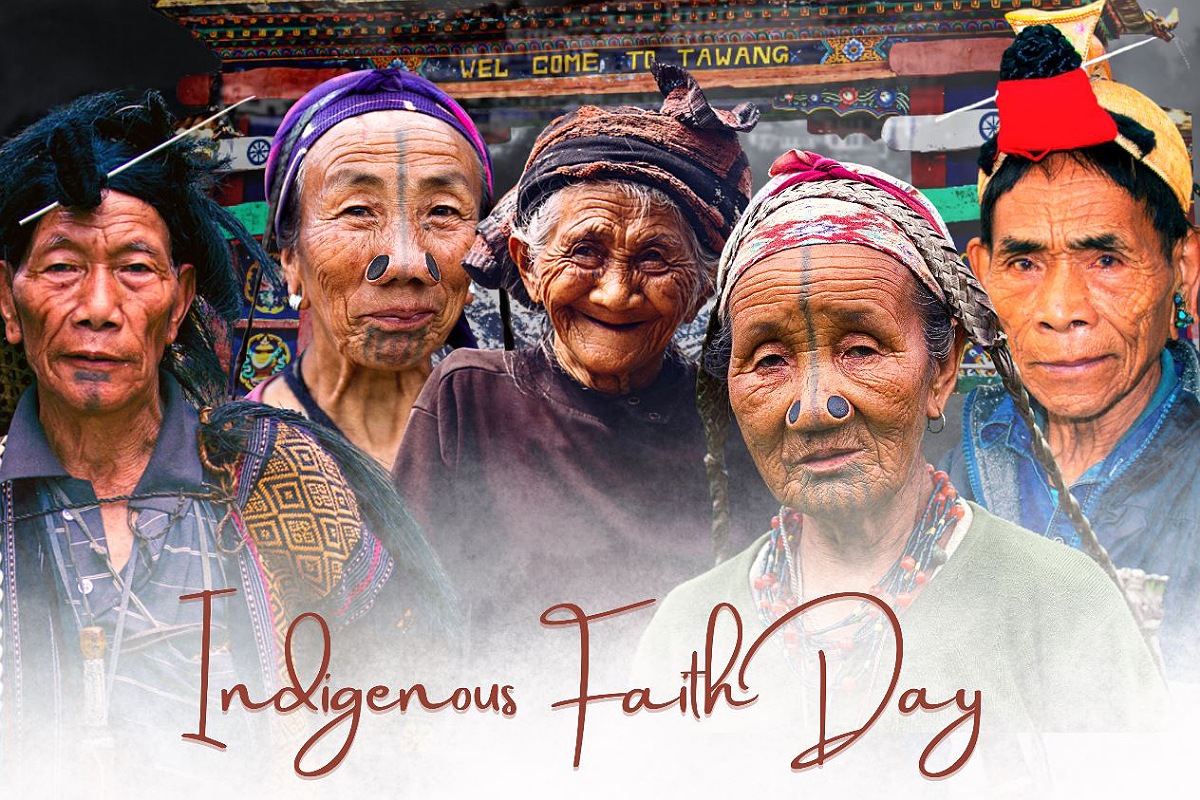People from various tribes across Arunachal Pradesh observed the Indigenous Faith Day on Thursday with a pledge to honour and preserve their diverse respective faiths and traditions.
Advertisement
Colourful processions showcasing rich and traditional tribal culture, community prayers and public meetings were organised at a number of places in the state under the banner of the Indigenous Faith and Culture Society of Arunachal Pradesh (IFCSAP) to mark the occasion.
Advertisement
There was a time when the frontier state used to observe the Day on 31 December. But now the date has been changed to 1 December in commemoration of the birth anniversary of Talon Rukbo, who they call father of the Indigenous Faith Movement.
The land of rising sun is rich with the world’s largest and varied ethnic tribal groups and subgroups with own language and dialects. There are 26 major tribes and over 100 sub-tribes.
Neolithic tools dating back to 11,000 years confirm that the state is one of the primitive regions with indigenous religion and rich diversity. Though with 30 per cent of the population Christianity is the main religion of the state, Hindus, with over a quarter of the population, are also prominent.
Mainly, native Tani population follows an indigenous belief system which has been systemised under the name “Donyi Polo” (Sun-moon).
Till the other day, only the Adis, a major tribe of the Tani group, celebrated the day. But now, other tribes too have joined it to make the event more meaningful.
The Adis in Arunachal Pradesh are known for their unique history of the indigenous religion and rituals and practices from generation to generation. The early writers on the Adis seem to have failed to go to the depth of the culture, tradition and religion of these people.
One of the universal features of the tribal faiths in the country is that all are supported to be endowed with a living spirit, and this holds true for the indigenous faiths of the Adis also.
Animals, plants, rivers and mountains are no exception to this rule. Thus, animism and supernaturalism came to be basic ingredients of the Adis.
This state has many temples dating back to the 10th and 14th centuries, many of which have been well-conserved. The state is popularly believed to have existed since the prehistoric days of the Ramayanaand Mahabharata apart from historical personalities like the Lord Parashuram, the King Bhismaka, and the Princess Rukmini.
The state receives an average rainfall of above 118 inches annually and is covered by around 82% with forest. It has the lowest population viscosity in the country at around 13 individuals per square kilometre.
Due to instantaneous modernization and westernization, the ancient customs, conventions, and traditions of this stunning state are fading away. Many people are making grave attempts to resuscitate and preserve their rich heritage.
Advertisement









